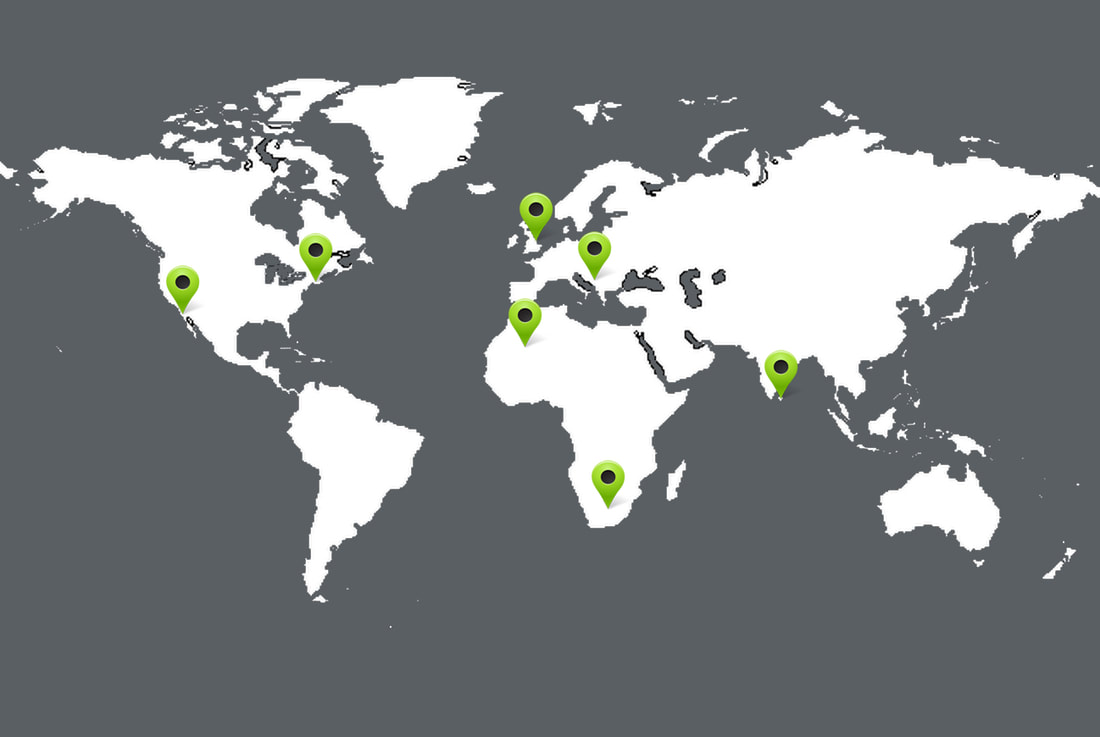|
This year ArtsAction Group partnered with Adelphi University to bring 8 students on a study abroad experience through the university's Center for International Education. The experience was led by Professors Cindy Maguire, Hannah Allen, and Ann Holt. Study abroad experiences are notably powerful not just because of the scholarly projects they focus on, but also because of the all-encompassing experiences that the students have meeting people, experiencing new cultures, places, foods, traditions, and values. An outcome of the course included an exhibition at Adelphi and an accompanying catalogue.
2 Comments
Integrating Sound with ArtmakingWe've returned from Theranda/Suhareka, Kosovo where we worked with 35 children and youth to create a series of interactive artworks. We had several email conversations along with video, photos and document sharing with Refki Gollopeni, teaching artist and our partner in Theranda. Based on this sharing, Refki began preparing the students for the work prior to the workshops. For the younger studnents they viewed one of our favorite Makey Makey music making videos as well as artists making interactive work such as Federico Muelas' Sonic Graphite 2B and Christine Sun Kim's Game of Skill 2.0 With the younger students we focused on incorporating the Makey Makey to add interactivity into the artmaking. Refki called upon a former student, now designer, to get the younger children's styrofoam hand-forms cut using laser cutting technology. The hands became the sculptural elements further designed and embellished by the students using mixed media. The work with the younger students was held over two days for a total of four hours in the studio. Check out our short video about the work. The projects we produce with the Centre have several aims and goals, depending upon student and community needs. Recently we've been balancing play and skill building by providing students with opportunities to approach familiar media, such as drawing and painting, in new and different ways. With over half of the population estimated to be under the age of 25 years, we want to encourage critical as well as creative thinking in support of their place in a growing global creative economy.
We're heading back to the Centre for Creative Education, Fellbach-Haus in Suhareka, Kosovo. In 2015 we introduced the concept of STEAM (science, technology, engineering, art and math) through a drawing machine workshop that utilized small DC motors with the exception of one piece created from a windshield wiper motor from an abandoned car! This year we're moving deeper into the knowledge and skill base for this work with the inclusion of Arduinos, E-Textiles, prototyping with breadboards, 3D printing, working with sensors and more. We're hoping to reproduce, in part, Federico Muelas and Terry Dane's Sonic Graphite 2B (SG2B). Stay tuned for updates. We'll be at the center for the week of March 20th.
You can read the Newsletter by clicking here.March 2016 we travel to Sri Lanka to work with children and youth in Mullaitivu, Northern Province of Sri Lanka. We are partnering with the Jesuit Centre for Social Concern. We will be working at Alampil Roman Catholic Maha Vidyalayam. Since the end of the war in May 2009, rebuilding the lives of those affected by the wars is a priority of the Jesuits in their mission in Sri Lanka. ArtsAction Group joins them in this important work.
The Round Table: Role of Education & Youth in Preventing Urban Violence & Countering Violent Extremism was held at UNHCR headquarters in Geneva, Switzerland on October 21, 2015. ArtsAction Group Co-Director Cindy Maguire attended to learn more about the work of INEE, it's partners and possible ways ArtsAction Group might continue to work with INEE. The event brought together members of the INEE's Working Groups, as well as external participants. Presentations and dialogue addressed ongoing research and programming related to these areas as well as how youth are and can be involved in peace-building. One area addressed that resonates with us was the role that sports, arts and culture can play in educating children and youth towards empowerment and transformation in conflict affected spaces. For more information on INEE and the roundtable check out these links:
Newly published - our 5 year retrospective catalogue, Imagining & Acting to Change Our World - is here! Documenting our partnership with Fellbach-Haus in Suhareka, Kosovo from 2010 to 2014. Check it out! Any profit from purchases, digital or hardcopy is tax deductible and directly benefits Fellbach-Haus programming.
More on our work in the Western Sahrawi camps and our work with Fellbach-Haus in Suhareka, Kosovo4/14/2015 To those of you new to the site, most of our activities are posted in real time on our facebook page, ArtsAction Group. A quick review of the last six months includes a posting of a Shared Roots interview with Fatimatu Mint Budda on our Western Sahrawi projects page and a photographic and video review of our shared work with colleagues and friends at Fellbach-Haus this March. This year's theme: Art and Technology. Both projects are a must see! This July Tiffanie Ord and Cindy Maguire, members of ArtsAction Group will present their paper: Arts-Based Activism Towards Liberation: The Case of the Western Sahara at ECAS this summer.
We've produced our end of year 2014 ArtsAction Group newsletter shared with our growing list of partners and supporters. It's been an active, productive and exciting year. Click on the link to view the newsletter on-line.
We have only to read the headlines to see how pressing the need is for bringing these kinds of activities to our children and youth. Thanks to all who have supported our efforts in creating, producing and sharing the arts with children and youth in conflict affected environments around the world. 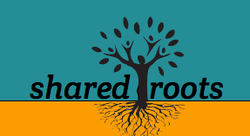 ArtsAction Group is excited to return to ARTifariti this year. Teaming up with the Shared Roots Project, a creation of Terrence Ross at Adelphi University, we will work with interested families to create profiles of an ancestor - using words, videos, or any other art form. Our team will help families organize their memories, photos, objects and more into a celebration of their ancestor. These stories and images will be uploaded to SharedRoots.net, to be seen by people around the world. As Enas Elmohand, a member of ArtsAction Group puts it, "history runs like a brook through the rich forest of time, negligent of the songs of individual birds." ArtsAction Group and the Shared Roots project will work with the Sahrawi community to add the songs of their ancestors to the recorded symphony of our collective history. Interested people and families should contact organizers for the ARTifariti festival and/or come to the festival to share your stories. For those of you not attending the festival, Shared Roots is open to all for posting stories of our ancestors. Check it out and add your story! Outside My Window - ArtsAction Group Exhibition at Woodstock Artist Association & Museum (WAAM)9/7/2014 We've just returned from Woodstock, NY after the opening of our first ArtsAction Group exhibition in the US. We had lots of folks coming through the gallery, viewing the work, and asking questions about our work. On exhibition were several large scale body maps created by children and youth from Kosovo and the Brentwood Residential Center (which is a facility for girls involved in the juvenile justice system). We also had photographs documenting 6 years of our work, in Kosovo and last year's projects in the Western Sahrawi refugee camps, as well as a viewing of a film illustrating our work in both of these communities, as well as animations created at Fellbach-Haus this past spring. A special thanks to Beth Humphrey, artist and arts educator, who facilitated this installation. We look forward to growing the partnership with students and teachers in that region of NY State as well as connecting them, through the arts, to the Kosovar and Western Sahrawi communities. 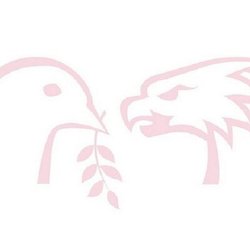 Just back from presenting our Kosovo work at the Art, Peace and Conflict Conference at the Desmond Tutu Centre at Hope University in Liverpool, UK. People from around the world presented their work linked to arts, peace and conflict. Our presentation, currently a working paper, covers our work in Kosovo spanning 1997 through the present. The work encompasses both community and grassroots-based fieldwork, as well as theoretical framing to illustrate how youth in specific communities, both rural and urban, processed their experiences during and after the protracted conflict and war whilst participating in arts programmes. The visual and performing arts projects were/are enacted across formal and non-formal venues such as refugee camps, community centres, museums, public schools, and cultural centres. The paper discusses how the arts are utilised within four specific identity-based phases: 1. Existential-Conflict in medias res (≥ 1990s) - survival, basic psychosocial responses; 2. Processing and Healing (post-war July 1999) – transitions between trauma, uncertainty, nostalgia; 3. Freedom (immediate post-declaration of independence in February 2008) – dynamics in collective validation and esteem; 4. State building and community building (2008 and beyond) – transitions from euphoria to ambiguity and fear. The entire event was uplifting, inspiring and a testimony to the power of the arts as a tool for healing and transformation. Stay tuned for more information and links to the individuals and organizations that presented over the 3-day event as well as to our final paper. We are directing people's attention to an article by Samia Errazzouki, a Moroccan-American writer and researcher. She recounts her experiences going to what the Western Sahrawis refer to as the Wall of Shame - a militarized sand berm built and guarded by the Moroccan military - during her visit to the Sahrawi refugee camps to attend the FiSahara, an international film festival. The sand wall is approximately 2,700 km long and is heavily mined. Thanks to Sandblast for sharing Part 1 of Errazzouki's story which can be found at Jadaliyya, an independent ezine produced by ASI (Arab Studies Institute), the umbrella organization that produces Arab Studies Journal, Tadween Publishing, FAMA, and Quilting Point.. 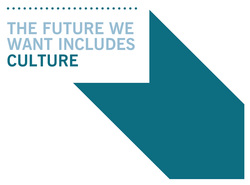 ArtsAction Group joins global campaign calling for culture to be included in the post-2015 Sustainable Development Goals. "We believe that culture is both a driver and enabler of sustainable development and that the explicit inclusion of targets and indicators for culture in the Sustainable Development Goals will enable transformative change." We have returned from working with our friends and colleagues at the community center Fellbach-Haus in Suhareka, Kosovo. This was our fifth year of co-creating another week of workshops that included body maps and another deeper look into stop-motion animation. The Body Map project began in the USA with students from Adelphi University creating their life-size hybrid body map artworks using the content of individual "I Am Poems" or responding to the prompt "Outside my window I see..." as well as collective art/mark making. Each group of 3-4 students was charged with finding a way to work together and to come up with a hybrid person that represented, collectively, each member of the team. This project is loosely based on the body maps projects that come out of countries such as South Africa and Tanzania. At Fellbach-Haus, the Adelphi body maps were shared as a way of sending greetings from the US students to the Kosovar students as well as a means of illustrating how the children and youth at Fellbach-Haus could go about creating their work. For this project the figure or body is the canvas upon which the group of students collectively shares their ideas, hopes, questions and dreams for the themselves and for an outside audience. This kind of artmaking asks students to consider the lives of others near and far away (US/Kosovo), engage in team work and collective decision making, as well as persistence and commitment in completing the work within a specific time frame. As one student put it, after viewing the final piece, "I've never felt so big before!" The stop-motion animation work this year was titled Open Stories. For this project youth responded to the prompt "Outside my window I see..." or they interviewed adult family members about their actions and experiences during the Kosovo War. We viewed the work of artist William Kentridge and discussed his use of drawing as a medium as well as how he used the social and political realities of his country's conflict to inform his content. The student animations are an interpretation of other people's experiences during the war or a commentary on contemporary social issues facing the country today. As a final point, it's important to note that all of this work including the curating and final exhibition, takes place over a 5 day period. Pretty impressive. Brief video showing students' working on body maps as well as final stop-motion animations.
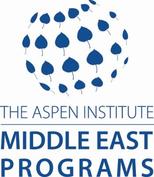 A member of ArtsAction Group attended the Aspen Institute's "Policies for the Growing Refugee Crisis in the Levant" in Washington DC this week. According to UNHCR, the number of Syrian refugees has surpassed 2 million, with Lebanon receiving the lion’s share, followed by Jordan, Turkey, and Iraq. Government and UN officials and experts on forced migration and humanitarian relief discussed the context and implications of the growing Syrian refugee crisis. Speakers included:
Part of the Education Cannot Wait Campaign
Statement of support for education in emergencies for Syrian refugees: Education Cannot Wait We call on the international community to support education for all Syrian children who are displaced or refugees due to the crisis. As part of a full-scale regional education response, we specifically call for the full financing of education for the largest population of Syrian refugees in Lebanon through a UN plan endorsed by the Government of Lebanon and the Secretary-General of the United Nations by funding the global humanitarian appeal RRP 6. By funding this plan, we will show it is possible to get children into school during an emergency and continue with the full-scale regional and global responses for education in emergencies because Education Cannot Wait. By Cindy Maguire Federico is one of our partners in art and social justice work! We met Fico through his collaborative work with the Western Sahrawi refugee camp communities in SW Algeria. We also team up with him through our arts and human rights courses at Adelphi University. His work in #1 Cartagena is a beautiful reflection of his artistic talent and commitment to justice. #1: Cartagena is an issue-oriented project with works spread throughout the historic district. #1: Cartagena reflects on the cultural traditions of the people, the history and the deep connections to the colonial past, as well as encompassing literature, cinema, music, dance and crafts. The Biennial focuses on the idea of presence in its multitude of meanings, conveying how the past continues with us in the present.
|
Archives
July 2024
ArtsAction Group
For the most up-to-date information regarding our work and projects, check out our website and social media sites. We will be using this space to comment and post projects, activities and conversations about our work. Categories
All
|
ArtsAction Group
Locations |
|
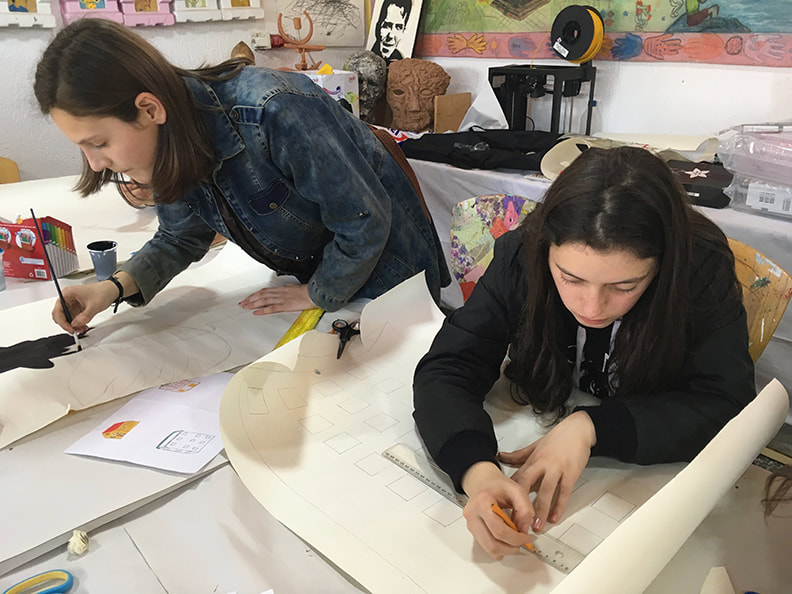
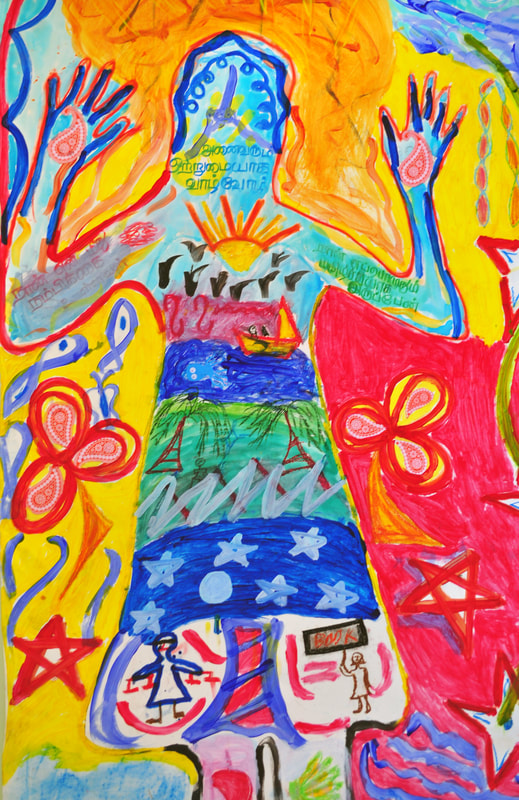

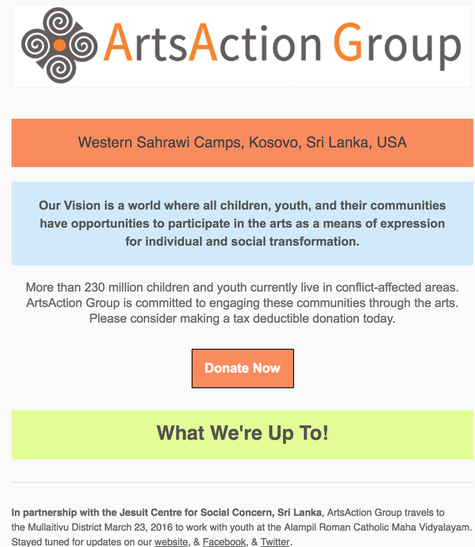
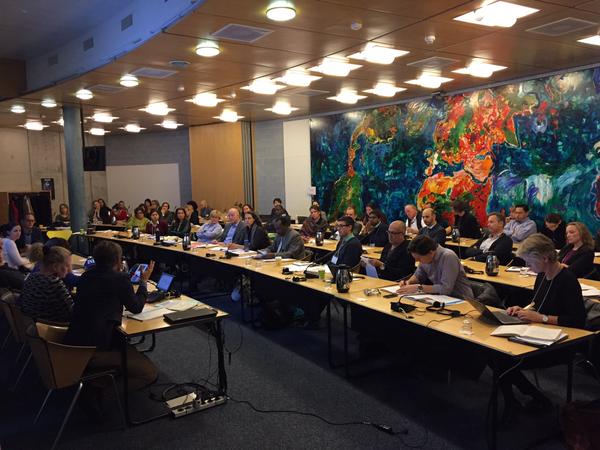
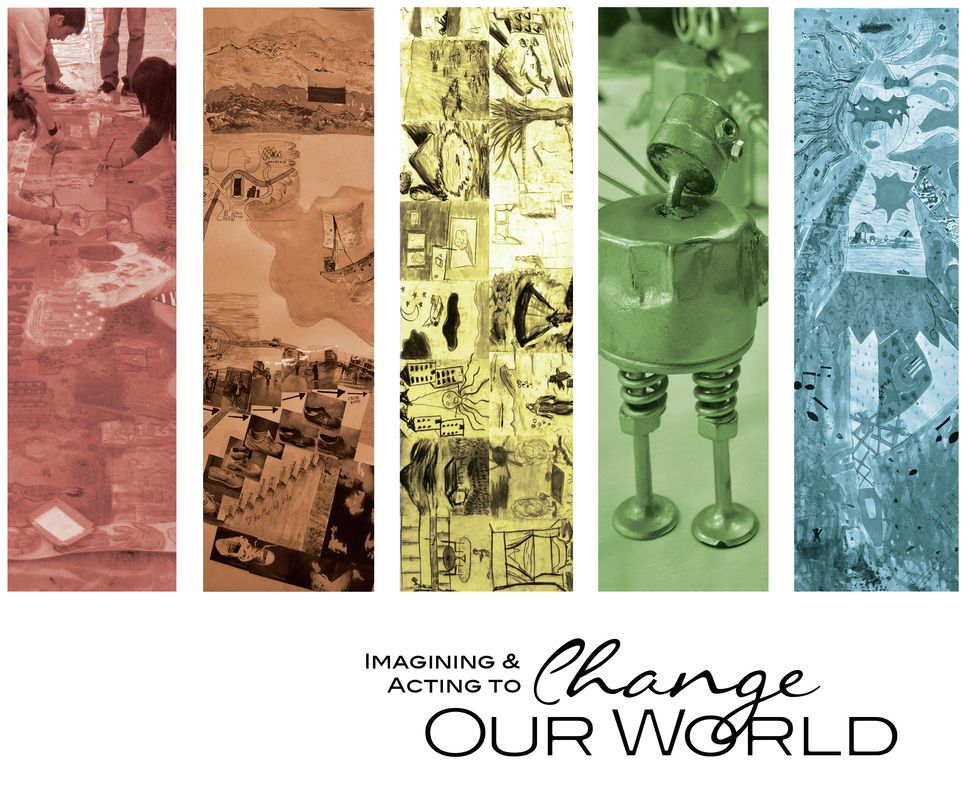
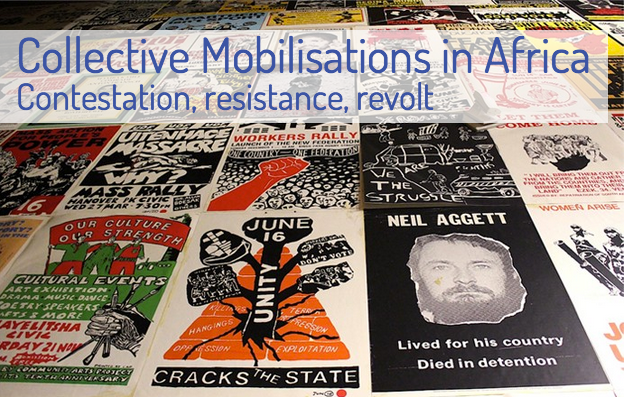
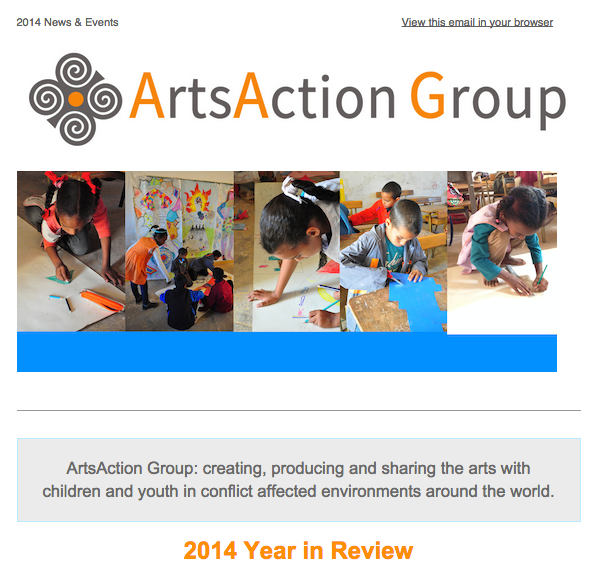
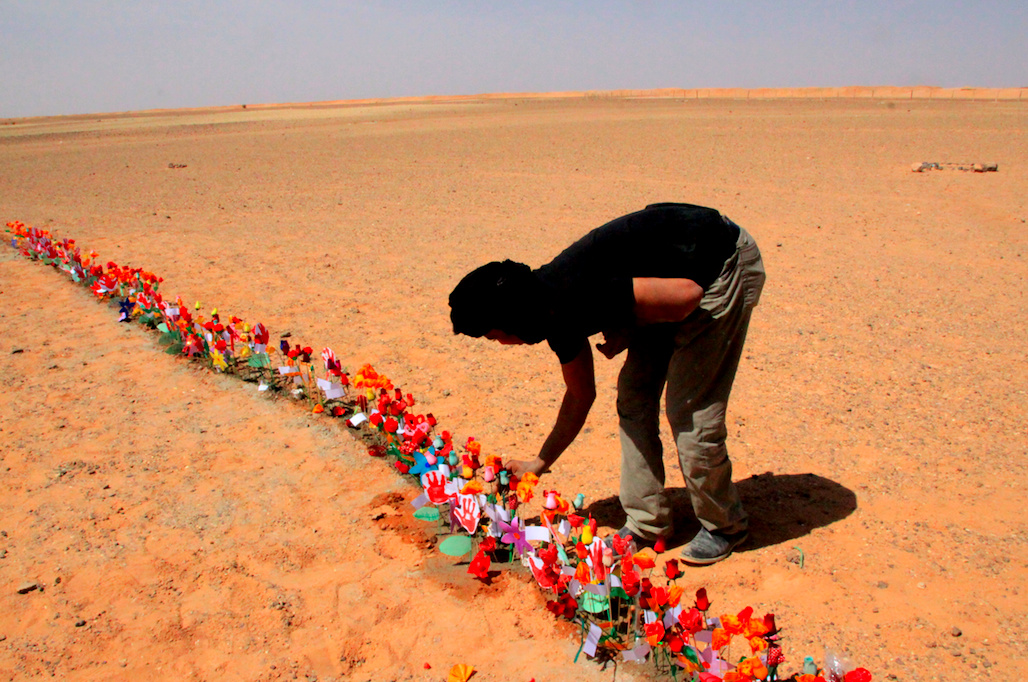
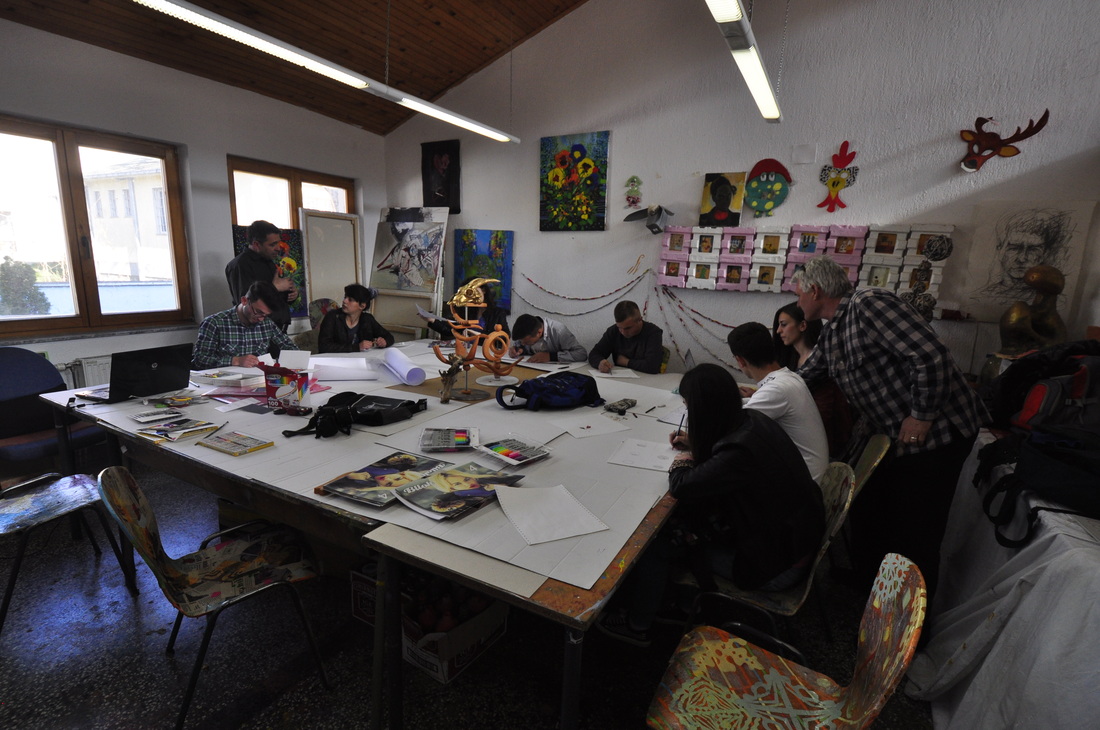
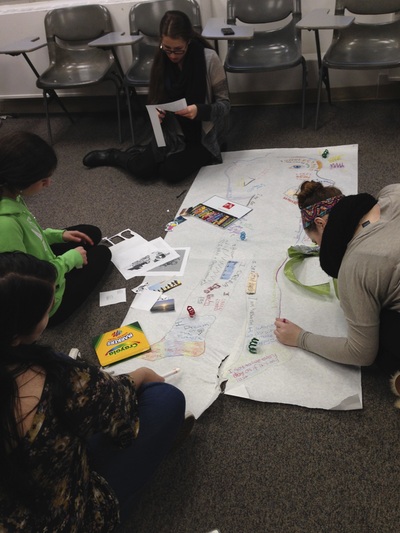
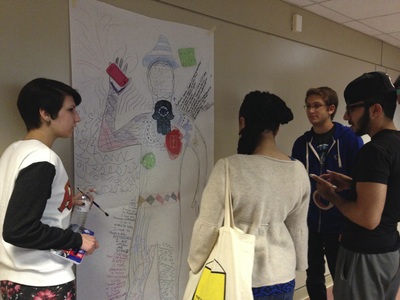
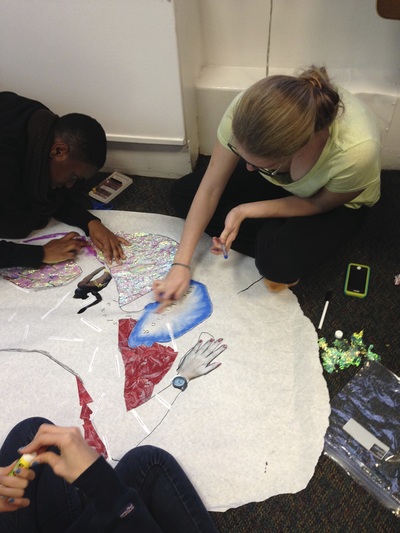
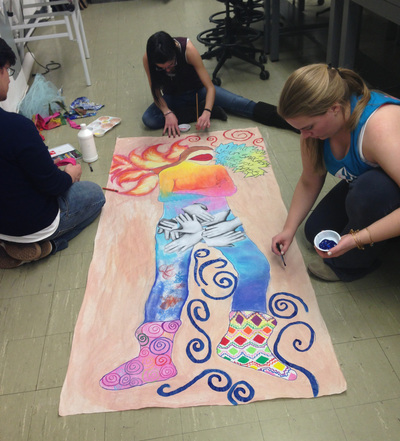
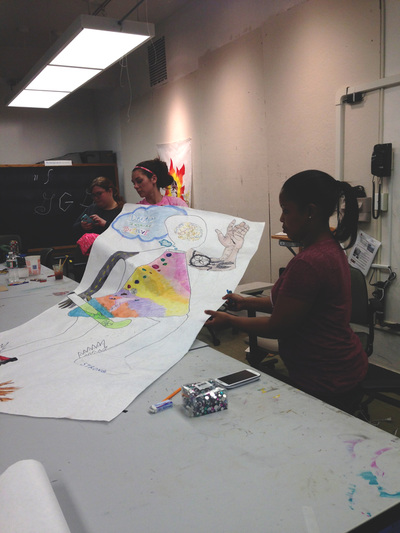
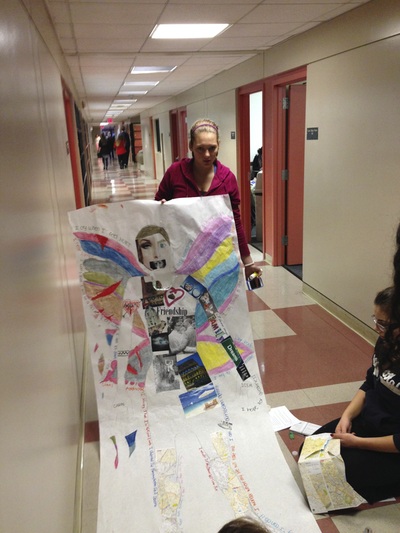

 RSS Feed
RSS Feed
